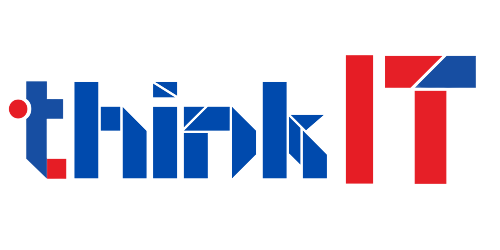
Revolutionizing education in Uganda: The transformative power of technology
In recent years, technological advancements have revolutionized various sectors globally, and education is no exception. In Uganda, the integration of technology into education has significantly transformed the teaching and learning landscape, enhancing accessibility, quality, and efficiency. This blog explores the multifaceted impact of technology on education in Uganda, highlighting key innovations, their implementation, and the resultant benefits.
E-learning platforms have emerged as crucial tools in making education accessible to a broader audience in Uganda. Platforms like Eneza Education and Kytabu provide interactive lessons, quizzes, and educational content that can be accessed via mobile phones. These platforms cater to students who may not have access to traditional classroom settings due to geographical or financial constraints. By leveraging mobile technology, these platforms bridge the gap in educational resources, ensuring that students in remote areas receive quality education. The concept of digital classrooms has gained traction, with initiatives such as the Ministry of ICT and National Guidance’s Digital Uganda Vision promoting the use of tablets and laptops in schools. Digital classrooms are equipped with smart boards, projectors, and internet connectivity, enabling teachers to deliver engaging multimedia lessons. This shift from traditional teaching methods to digital learning environments has enhanced student participation and understanding, making learning more interactive and effective. Interactive learning tools like Khan Academy and Google Classroom have become integral to the Ugandan education system. These tools offer a plethora of resources, including video tutorials, practice exercises, and assessments, which cater to various learning styles. Teachers can assign tasks, track progress, and provide personalized feedback, fostering a more individualized learning experience.
Mobile applications such as Mavis Talking Books and U-Learn Africa have made significant contributions to early childhood education and adult literacy programs. These apps provide audio-visual content that aids in language learning, literacy, and numeracy skills, particularly for young children and adults in rural areas. By utilizing mobile technology, these applications make learning accessible and convenient, even for those with limited resources. Several universities in Uganda have embraced online learning, offering distance education programs that cater to both local and international students. Institutions like Makerere University and Uganda Christian University provide online courses and degree programs, enabling students to pursue higher education without the need to relocate. This flexibility is particularly beneficial for working professionals and individuals with family commitments. Virtual Learning Environments (VLEs) such as Moodle and Blackboard are widely used in Ugandan higher education institutions. VLEs facilitate online discussions, collaborative projects, and access to digital libraries and resources. Students can engage with course materials, participate in forums, and submit assignments online, fostering a collaborative and dynamic learning experience.
The Ugandan government has implemented several initiatives to promote ICT in education. The Digital Uganda Vision aims to integrate ICT into all levels of education, providing infrastructure, training, and resources to schools across the country. The initiative focuses on enhancing digital literacy, bridging the digital divide, and preparing students for the future job market. Public-private partnerships have played a crucial role in advancing tech in education. Collaborations between the government, NGOs, and private tech companies have led to the development of educational programs and the provision of digital tools and resources. For instance, the partnership between the Ministry of Education and Sports and the United Nations International Children’s Emergency Fund (UNICEF) has resulted in the implementation of digital learning platforms and teacher training programs.
Technology has also transformed teacher training and professional development in Uganda. Online courses, webinars, and workshops provide teachers with the skills and knowledge needed to integrate technology into their teaching practices effectively. Platforms like Teach2030 offer training modules that help teachers enhance their digital literacy and pedagogical skills, ultimately improving the quality of education delivered.
The use of technology in education has significantly boosted student engagement and performance. Interactive lessons, multimedia content, and gamified learning experiences capture students’ interest and motivate them to participate actively. Additionally, technology provides access to a wealth of information and resources, enabling students to explore subjects in greater depth and at their own pace. As a result, students are better prepared for exams and future academic pursuits.
Despite the numerous benefits, integrating technology into education in Uganda faces several challenges. Limited internet connectivity, high costs of digital devices, and inadequate infrastructure in rural areas hinder the widespread adoption of EdTech. Additionally, there is a need for continuous teacher training and support to ensure effective use of technology in classrooms.
The future of tech in education in Uganda looks promising. Continued investment in ICT infrastructure, government support, and innovative solutions will drive further advancements. The expansion of mobile networks and the development of affordable digital devices will enhance accessibility, ensuring that more students benefit from tech-enabled education. Furthermore, the growing emphasis on STEM (Science, Technology, Engineering, and Mathematics) education will prepare students for future careers in the tech industry, contributing to the country’s economic growth and development.
Technology has undeniably transformed education in Uganda, making it more accessible, engaging, and effective. From e-learning platforms and digital classrooms to mobile applications and online learning, the integration of tech has revolutionized the way students learn and teachers teach. While challenges remain, the continued efforts of the government, educational institutions, and private sector will ensure that technology continues to play a pivotal role in shaping the future of education in Uganda. As tech evolves, so too will the opportunities for students and educators, paving the way for a brighter and more inclusive educational landscape.



Leave a Reply